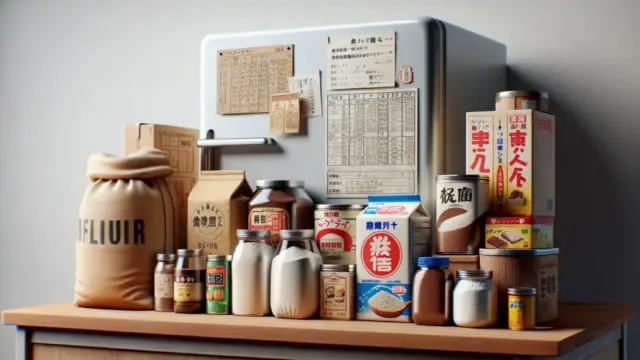If you’re a coffee lover, you probably have your own preferences when it comes to choosing beans and savoring their unique flavors. Imported, fresh coffee beans offer an exceptional taste and aroma that can elevate your coffee experience. However, if you’re looking to import coffee beans for the first time, you might feel a bit overwhelmed about where to start.
In this article, we’ll provide you with a comprehensive guide on how to confidently import coffee beans, choose the right varieties, and even how to store them properly. By the end of this read, you’ll be well on your way to discovering beans that suit your taste perfectly. So, let’s dive into the delightful world of coffee together!
- The benefits and joys of importing coffee beans
- How to choose a reputable importer and navigate the process
- Tips for selecting high-quality beans and storing them effectively
What Are the Benefits of Importing Coffee Beans?
Importing coffee beans comes with a host of benefits. One of the most appealing aspects is the opportunity to enjoy varieties that aren’t available locally, as well as high-quality beans that prioritize freshness. Imported coffee beans often arrive freshly roasted, which significantly enhances their flavor and aroma. This opens up a world of possibilities for discovering the perfect beans to suit your taste.
Additionally, importing coffee allows for a diverse range of options. You can explore region-specific beans or those with unique flavors that reflect the distinct characteristics of specific farms, deepening your appreciation for the coffee world. Let’s take a closer look at some of the specific advantages.
Savoring Fresh Flavors
One of the standout benefits of importing coffee beans is the chance to enjoy their fresh flavors. Beans available in local markets can lose their taste during transportation and storage. However, imported beans are often shipped directly, allowing them to reach you shortly after roasting, ensuring a rich and aromatic coffee experience. Using fresh beans lets you fully appreciate the true essence of coffee.
Moreover, importing coffee opens the door to a variety of flavors, making it easier to find a type you love. The joy of discovering a bean that perfectly matches your palate is a special experience for any coffee enthusiast.
- Fresh coffee beans offer a rich flavor profile
- Direct shipping ensures immediate access post-roasting
- The thrill of finding your ideal beans expands
Expanding Your Options
Importing coffee beans significantly broadens your choices. You can access unique beans from various regions worldwide, allowing you to enjoy flavors that differ from your usual picks. For instance, Ethiopian beans are known for their fruity aromas, while Brazilian beans provide a delightful nutty flavor.
Additionally, when you import directly from specific farms or producers, you can be assured of the quality of the beans. This enables you to explore the rich and complex world of coffee and discover your own special brew.
If you’re interested in importing coffee beans, it’s also a good idea to deepen your knowledge about storage methods. Understanding how to maintain the freshness of green coffee beans is essential. Check out this article on “How to Store Green Coffee Beans to Keep Them Fresh” for tips that will help you enjoy fresh coffee to the fullest.
- Experience a variety of beans from around the globe
- Enjoy the unique characteristics of different beans
- Assurance of quality through direct imports from producers
A Beginner’s Guide to Importing Coffee Beans
Importing coffee beans might seem daunting at first, but there’s actually a straightforward way for anyone to get started. For beginners, having a solid understanding of the process is key to success. In this article, we’ll dive into how to choose a reliable supplier and outline the specific steps involved in importing coffee beans. By the end of this read, you’ll be equipped to confidently source your favorite beans.
The first step is to select a trustworthy importer. Next, understanding the detailed process of importing will help you smoothly integrate coffee beans into your routine. Let’s get started!
How to Choose an Importer
Choosing a reliable importer is crucial when it comes to importing coffee beans. Start by gathering information online and checking reviews and ratings. Customer feedback and testimonials can be especially insightful. Additionally, visiting the importer’s website allows you to compare the types of beans they offer, as well as prices and services.
Effective communication with the importer is also important. Reach out with inquiries to gauge their responsiveness and attentiveness, which can help you determine their trustworthiness. Finding an importer that you feel comfortable with is the first step toward enjoying quality coffee.
- Check reviews and ratings
- Compare the types of beans and prices
- Prioritize communication with the importer
Steps for the Importing Process
The importing process features simple steps that even first-timers can easily follow. First, place your order with the chosen supplier, clearly specifying the quantity and type of beans you want. Next, confirm the payment methods available. Most suppliers accept credit cards and bank transfers.
Once your order is complete, the supplier will send you the necessary documentation for the import process. These documents will include vital information for customs, so be sure to review them carefully. Finally, when your shipment arrives, check the condition of the beans, and you’ll be all set to enjoy your perfect cup of coffee.
- Order beans from the supplier
- Confirm payment methods
- Review the necessary import documentation
How to Choose High-Quality Coffee Beans
When importing coffee beans, selecting high-quality ones is crucial. Understanding the types and characteristics of beans can help you find coffee that suits your taste. Additionally, knowing about flavor profiles and roast levels can lead to a more satisfying coffee experience. In this article, we’ll explore how to choose high-quality coffee beans in detail.
To make it easy for beginners, we’ll provide a concise explanation of the different types of coffee beans and their flavor variations. This reference will help clarify the traits you seek in coffee, allowing you to narrow down your options.
Know the Types and Characteristics of Beans
There are primarily two types of coffee beans: Arabica and Robusta. Arabica beans are known for their rich flavor, acidity, and pleasant aroma, making them widely regarded as high-quality coffee. On the other hand, Robusta beans have a stronger bitterness and higher caffeine content, typically used in espresso and blended coffees.
Moreover, the beans’ characteristics vary by origin. For instance, Ethiopian beans offer fruity and floral notes, while Brazilian beans are nutty with a rich body. Using this information to choose beans that match your taste preferences is key.
- Coffee beans come in Arabica and Robusta varieties.
- Arabica beans are flavorful and aromatic.
- Bean characteristics differ by origin.
Flavor and Roast Level
The flavor of coffee can significantly change depending on the roast level. Light roasts tend to have a brighter acidity, allowing you to enjoy the beans’ inherent flavors and are ideal for those who prefer fruity notes. Medium roasts provide a balanced flavor that works well for various brewing methods. Dark roasts, on the other hand, are characterized by their strong bitterness and rich body, making them suitable for espresso.
Consider what flavors you enjoy when choosing a roast level. Doing so will undoubtedly enhance your coffee experience and make your coffee moments more fulfilling.
- Flavor changes with roast level.
- Light roasts are bright and fruity.
- Dark roasts are strong and full-bodied.
Tips for Storing Imported Coffee Beans and Keeping Them Fresh
After importing coffee beans, knowing how to store them properly is crucial for maintaining their freshness. Since the quality of the beans directly affects the flavor, appropriate storage can help you maximize their taste and aroma. Paying attention to the storage containers and the environment where you keep the beans is essential for enjoying delicious coffee for a long time.
In this article, we’ll explore how to choose the right containers for storing coffee beans and the ideal conditions for keeping them fresh. By following these tips, you’ll be able to savor your imported beans for as long as possible.
How to Choose the Right Storage Container
Selecting the right container for storing coffee beans is incredibly important. First and foremost, opt for a container that can be tightly sealed. Exposure to air accelerates oxidation, so a container that closes securely is ideal. Glass and stainless steel containers are excellent choices, as they minimize odor transfer and help maintain quality.
Choosing an opaque container can also protect the beans from direct sunlight. When beans are exposed to light, their flavor can deteriorate, so it’s best to store them in a dark place. Keep these factors in mind to find a storage container that works for you.
- Choose a container that can be sealed tightly
- Glass or stainless steel is ideal
- An opaque container is preferable
Creating the Right Environment for Freshness
To maintain the freshness of your coffee beans, paying attention to the storage environment is essential. First, store them in a cool place. High temperatures can easily lead to deterioration, so aim to keep them in a cool, dark area. Additionally, humidity is another factor to consider. In humid conditions, beans are more prone to mold, so a dry environment is ideal.
It’s also a good idea to store the beans in smaller quantities. This way, each time you open a container, you can enjoy fresh beans, which helps maintain the flavor. By being mindful of your storage environment, you can always enjoy delicious coffee.
- Store in a cool place
- Low humidity is ideal
- Store beans in small quantities
Conclusion
Importing coffee beans is a fantastic way to enjoy fresh, high-quality coffee. By bringing in beans from abroad, you’ll encounter a diverse range of options that aren’t available domestically, giving you the opportunity to discover the perfect coffee to suit your taste. Plus, by understanding how to choose the right importers and the procedures involved, even beginners can confidently dive into this rewarding experience.
When selecting your beans, it’s important to pay attention to factors like the type, roast level, and storage methods. Taking these considerations into account will ensure that you can savor delicious coffee anytime. Let’s elevate your coffee life through the importation of coffee beans!
- Importing coffee beans is a way to enjoy fresh flavors.
- Choosing a reliable importer is key to success.
- Taking care of storage helps maintain the freshness of the beans.
Trying your hand at importing coffee beans can truly enrich your coffee experience. If you have any thoughts or questions, feel free to leave a comment!
















































Comment